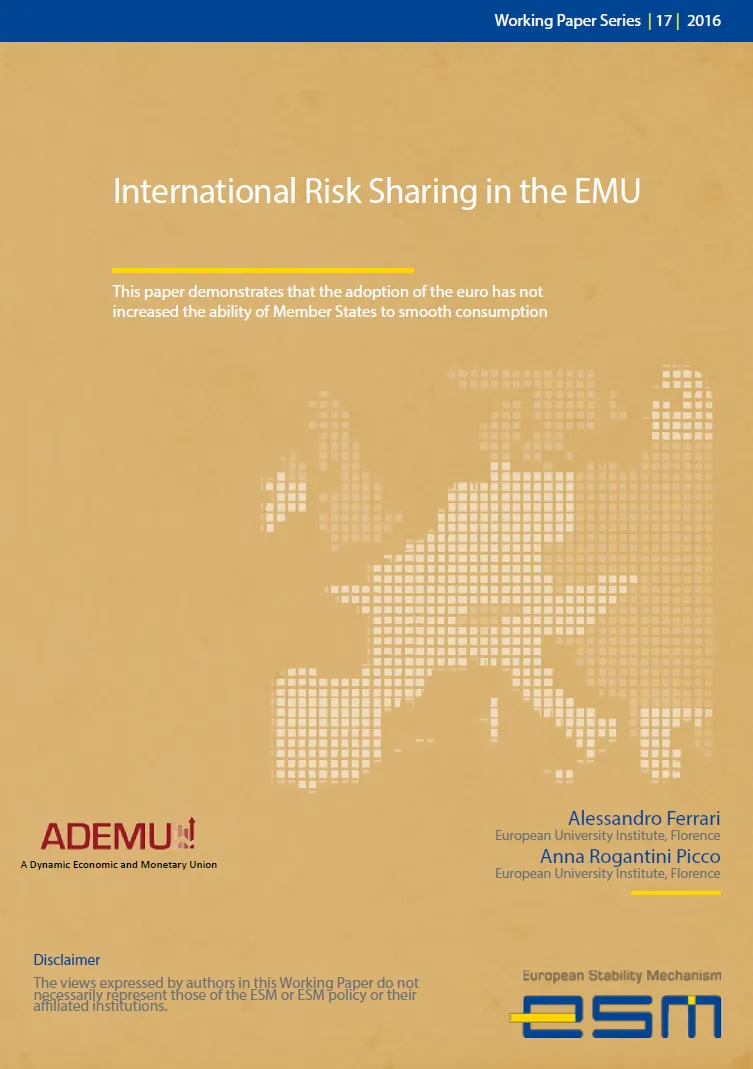International Risk Sharing in the EMU

Download PDF: Working Paper 17
This paper demonstrates that the adoption of the euro has not increased the ability of Member States to smooth consumption.
Authors: Alessandro Ferrari and Anna Rogantini Picco | European University Institute, Florence
Paper presented at ADEMU (A Dynamic Economic and Monetary Union) conference co-organised by the ESM in May 2016
Abstract:
This paper aims at empirically assessing the effect of the adoption of the euro on the ability of euro area member states to smooth consumption and share risk. With the objective of evaluating the economic performance of euro area countries in the scenario where the euro had not been adopted, we construct a counterfactual dataset of macroeconomic variables via the Synthetic Control Method. In order to get some preliminary measures of risk sharing, we first compute bilateral consumption correlations and Brandt-Cochrane- Santa Clara Indexes across euro area member states. We then decompose risk sharing in different channels by means of the Asdrubali, Sorensen and Yosha (1996) output decomposition. Our preliminary measures and our decomposition of risk sharing are computed with both actual and synthetic data so as to identify whether there has been any effect of the adoption of the euro on risk sharing and through which channels it has occurred. We find that the euro has not affected the level of risk sharing across euro area countries, but has partially reduced the ability of member states to smooth consumption. We attribute this change to the higher GDP growth generated by the adoption of the euro, which has been accompanied by a greater output volatility. We also report differential effects for core and periphery countries, showing that the former have not suffered any negative effects from the adoption of the euro in terms of risk sharing.
Disclaimer: This Working Paper should not be reported as representing the views of the ESM. The views expressed in this Working Paper are those of the author(s) and do not necessarily represent those of the ESM or ESM policy. No responsibility or liability is accepted by the ESM in relation to the accuracy or completeness of the information, including any data sets, presented in this Working Paper.
JEL codes: F32, F36, F41